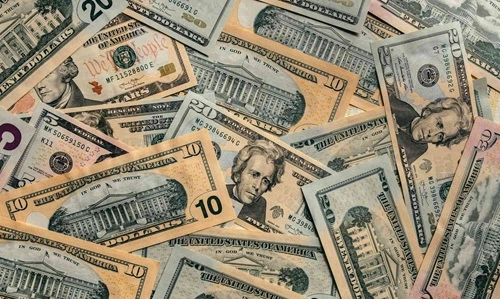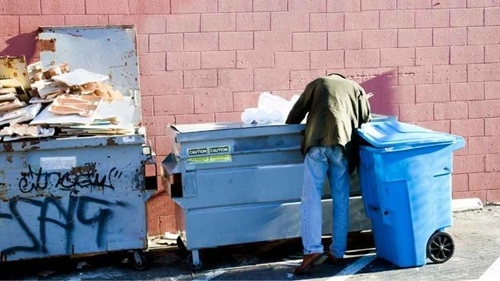Money is something everyone uses every day — to buy food, pay bills, or save for the future. But what happens if someone decides to destroy it? Whether out of frustration, art, or protest, many people have wondered: Is it illegal to burn money in the United States? The short answer is yes — destroying U.S. currency is a federal offense. Let’s understand why.

The Law Behind Burning Money
In the United States, all paper bills and coins are considered property of the federal government, not of the individual who holds them. While you can use money freely, you don’t legally own the right to destroy it.
The main law that prohibits destroying or defacing U.S. currency is Title 18, Section 333 of the United States Code. It clearly states:
“Whoever mutilates, cuts, defaces, disfigures, or perforates, or unites or cements together, or does any other thing to any bank bill, draft, note, or other evidence of debt issued by any national banking association, Federal Reserve Bank, or Federal Reserve System, with intent to render such item unfit to be reissued, shall be fined or imprisoned.”
This means if you intentionally burn, rip, or destroy money to make it unusable, you’re breaking federal law.
Why the Government Prohibits Burning Money
There are a few logical reasons behind this law:
- Economic Stability – The U.S. government wants to maintain a stable currency supply. If citizens started destroying cash freely, it could disrupt the flow of money in circulation.
- Counterfeit Prevention – Damaging bills can make it difficult to identify counterfeit or illegal currency.
- Government Property Protection – Since currency represents government-issued debt, destroying it is treated similarly to damaging federal property.
Possible Penalties
While prosecutions for burning small amounts of cash are rare, the law still allows for punishment. Violators could face:
- Fines – The specific fine amount varies, but it can be significant.
- Imprisonment – In serious cases or large-scale destruction, imprisonment up to six months is possible.
- Federal Record – Even if no jail time is given, having a federal offense on record can affect employment and travel.
In most situations, law enforcement agencies won’t pursue someone who accidentally burns a bill or destroys a small amount of money for a harmless reason. However, public or large-scale acts, especially if recorded or used for protest, could attract legal attention.
Exceptions and Gray Areas
Certain cases blur the line between legality and art or education. For example:
- Art Projects – Some artists use shredded or altered money in artwork. As long as the currency is not destroyed beyond recognition or is used with no intent to defraud, authorities may not take action.
- Accidental Damage – Accidentally damaging money (e.g., burning a bill in a fire) is not considered a crime.
- Collectible Coins or Bills – Some people cut or frame currency as collectibles; this is typically tolerated as long as it’s not intended to destroy the note’s value or deceive others.
What To Do If Your Money Gets Damaged
If your money is accidentally torn, burnt, or mutilated, you can often get it replaced. The Bureau of Engraving and Printing (BEP) runs a Mutilated Currency Redemption Program. You can send in damaged bills, and if more than half of the note is identifiable, they will replace it free of charge.
FAQs About Burning Money
1. Is burning money considered freedom of expression or protest?
No. Even if the intent is symbolic or expressive, burning U.S. currency still violates federal law. Freedom of speech under the First Amendment doesn’t protect acts that destroy government property.
2. Can I shred or cut money for fun?
Technically, no. Shredding or cutting bills so they can’t be used again is illegal under 18 U.S.C. § 333.
3. What if I burn fake or play money?
Burning fake or replica money is legal — as long as it’s clearly not real currency and cannot be confused with genuine U.S. bills.
4. Is destroying coins also illegal?
Yes. Defacing or melting coins for the purpose of altering or profiting from the metal content can violate federal laws, such as 18 U.S.C. § 331.
5. Can I face charges for accidentally burning money?
No. Accidental damage doesn’t meet the legal standard of intent to destroy or deface currency.
Conclusion
Burning or destroying U.S. currency is not a harmless act — it’s a federal offense under Title 18, Section 333. While minor acts may not always lead to prosecution, intentionally damaging money remains illegal. If you ever damage your cash by accident, it’s better to exchange it through official channels rather than throw it into flames.

